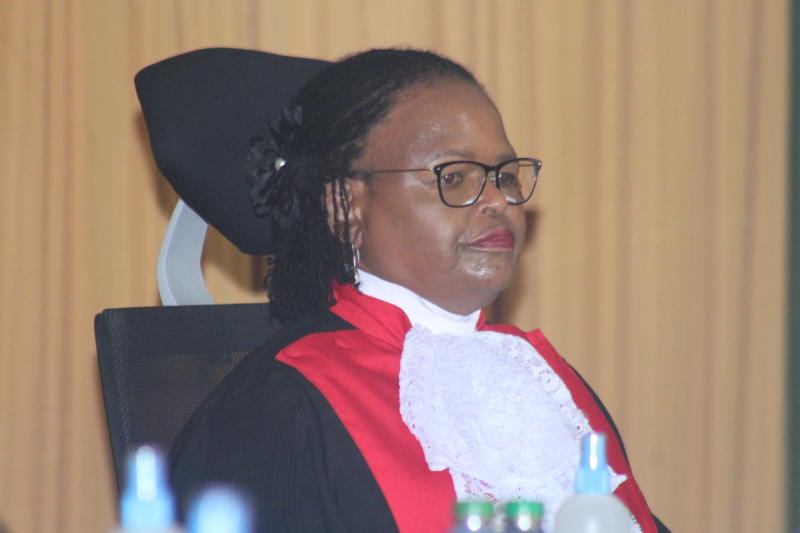Chief Justice Martha Koome during a past court session. [Collins Kweyu, Standard]
×
The Standard e-Paper
Kenya’s Boldest Voice

Chief Justice Martha Koome during a past court session. [Collins Kweyu, Standard]
Chief Justice Martha Koome has outlawed public comments on presidential election petitions once filed at the Supreme Court.